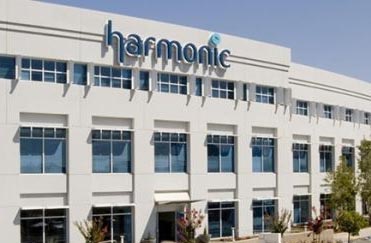
It's a disrupted period in the business of cable network technology, as the top two U.S. operators, Comcast and Charter Communications, make huge investments to shift to the DOCSIS 4.0 standard and Distributed Access Architecture (DAA) alignment.
Some vendors are floundering. Casa Systems just declared bankruptcy, and CommScope is flirting with Chapter 11, as the two companies struggle to transition from selling hardware like Cable Modem Termination Systems (CMTS) to software that duplicates CMTS processes on servers.
Other companies, like Canada's Vecima Networks, which is trying to buy Casa's broadband tech business, are trying to ramp up.
Then there’s Harmonic, which has emerged as the early leader in the business of supplying virtualized, multi-gigabit cable network tech.
Since Tuesday, when the San Jose, California-based tech company reported exceeding revenue guidance in the first quarter, Harmonic's stock is up about 17% to nearly $11 a share, with early adoption of DOCSIS 4.0 and DAA by Comcast and Charter supplying nearly half of Harmonic's revenue. (Here's Harmonic's Q1 earnings release.)
Revenue was down for Harmonic in the first quarter to $122.1 million versus $157.6 million in the first quarter of 2023, with broadband segment sales declining to $78.9 million versus $100.4 in the year-ago quarter.
But in a lumpy business determined by when purchase orders for two huge clients come in, Harmonic expects sales to pick up significantly in the second half of 2024.
Harmonic, which reported $84.3 million in cash on hand, also expects improvement from its video segment, which was recently taken off the sales block. Video revenue came in at $43.2 million, compared to $57.3 million in Q1 last year.
The company also expects to announce more new clients beyond Comcast and Charter.
“We continue to focus on further diversifying our business. This is showing positive results with larger portion of our business coming from others in the marketplace,” said Nimrod Ben-Natan, who just took over for the retiring Patrick Harshman as Harmonic's CEO.
"We are seeing an expanding pipeline of opportunities from these other operators, driven by urgency to modernize their architecture to enable greater reliability and higher upstream and downstream speeds," Ben-Natan added.







